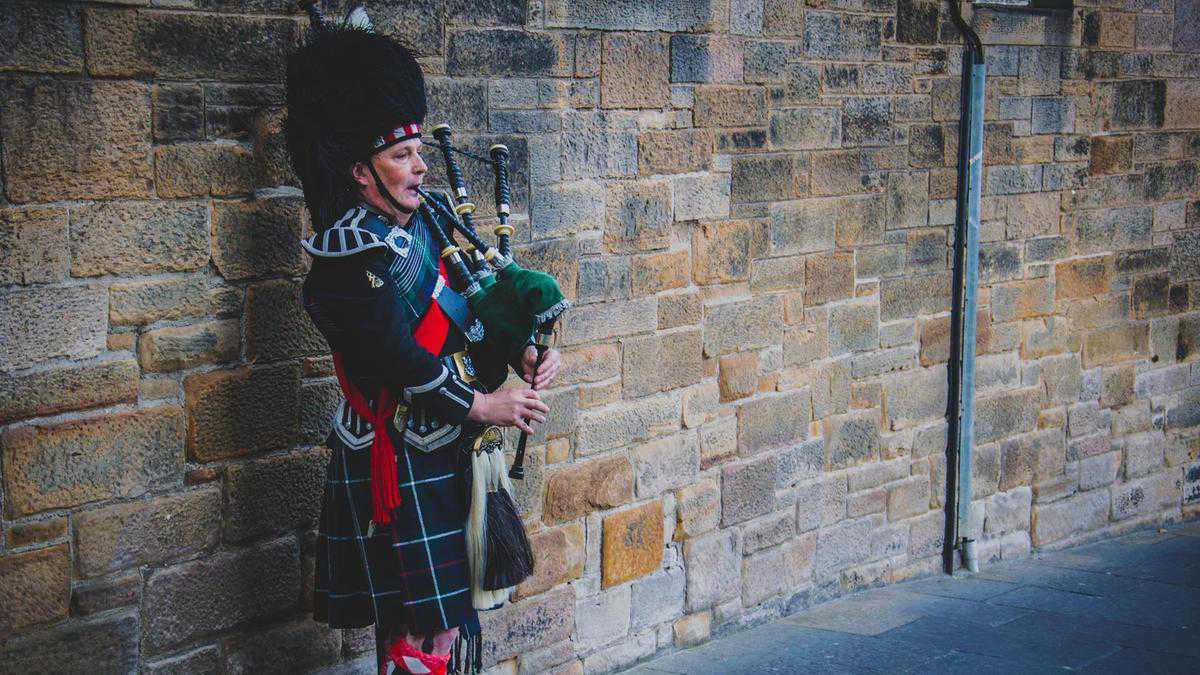On the move: How music and travel are intrinsically linked
10 March, 2019

Last week, as I wandered along Edinburgh’s Princes Street, my ears picked up on the unmistakable screech of a set of bagpipes, loudly pushing out the notes to Scotland’s unofficial national anthem. As Flower of Scotland drifted above the country’s capital city, it made me think about music and travel and how much the two are intertwined.
As much as Edinburgh’s clifftop castle, cobbled alleyways and storied history are unmistakably a part of the city’s culture, so are the bagpipes. The skirl of the pipes – those long, slow, high-pitched notes – worked to instantly remind me that I was in Scotland. A glance at the piper responsible suggested I wasn’t the only one, as tourists lined up to take a picture with him, a fantastic souvenir of a trip overseas. And that association of music and nation is definitely not something that’s unique to Great Britain.
The link between music and memory
Think about it for a moment. Should you happen to hear a fluttering of flamenco notes, chances are, your mind would drift straight to thoughts of Spain. A few mellow notes of sax can instantly prompt memories of time spent in New Orleans. Music has an intrinsic power to transport us to a place.
Think about a time you took a trip somewhere and repeatedly heard a song while there. Whether you love it or hate it, when you hear it again many years later, your mind instantly transports you back to that place. Case in point for me is the hugely irritating La Macarena. Despite having been a hit some 26 years ago, when one-track wonders Los Del Rio burst onto the scene with the tune, whenever I hear this piece of music. I’m back in the Balearics as a nine-year-old child, slurping on ice cream.
Evoking emotions
The power of music also has the ability to create meaning in situations where a language barrier prevents the spoken word from doing so. That’s something I noticed on a recent trip to Brazil’s Campo Grande. One evening, some friends and I visited a very small local bar where a Brazilian rap band were playing in the courtyard.
I visited a few months before the country’s far-right president Jair Bolsonaro was sworn in and political tensions in the country were running high. My lack of Portuguese meant I couldn’t appreciate the lyrics. However, as the night unfolded, despite not comprehending a word of what was being sung, the energy behind the musicians’ and the audience’s passionate responses made me realise that this performance was as much about evoking political emotion as it was about entertaining.
Music helps create new memories
And that’s something else that music does – it evokes emotion. Which brings me back to the bagpipes which, as an instrument, is a bit of a contradiction. On one hand, it’s rather irritating – even Scottish ceilidh bands limit its prominence in their sets. But on the other hand, it’s profoundly moving and has the capacity to overwhelm like few other instruments can, something that comes down to its reed-like structure, the slow speed at which it’s played and its presence at emotional events like funerals and weddings.
Scientists have already proven that musical memory is the last memory we lose in old age – something that now makes perfect sense to me.
Music touches people’s hearts and helps create new memories. Scientists have already proven that musical memory is the last memory we lose in old age – something that now makes perfect sense to me when I think about visiting my elderly grandpa in hospital many years ago.
Despite struggling to remember what he had eaten for lunch, certain songs on the radio had him recanting detailed accounts of his time in India while serving in the British Army. Another oft-played tune on a radio station had him recounting tales of his first date with my grandmother.
By tapping into some of our purest emotions and urges, music has the power to transport us somewhere else entirely.
TAG(s):
